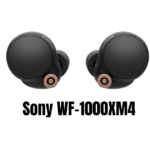
Schools are experiencing a shift from routine, mundane lectures and boring classrooms. Nowadays, it is about interactive classrooms and super advanced labs with the best equipment.
Students are always keen to know about how living organisms function. What can be better than taking them to a lab and letting them experience the functioning of living organisms? Yes, that is the potential of biology labs equipped with the best, efficient, and ultra-safe laboratory equipment. Schools, it is time to trust biology lab equipment manufacturer Science Lab Supply in Kenya for all kinds of biology lab equipment. For schools to begin with, they must equip their labs with this equipment and plan to include more.
Here are the Top 10 Biology Lab Equipment For School
The biology lab equipment that we have picked is such equipment that schools can’t do without:
1- Test Tubes
- Use: Test tubes are small cylindrical containers closed from the bottom. They hold and mix small amounts of liquid samples during experiments. They are versatile and can be capped to prevent spillage or contamination.
- Why a Must? Test tubes are an essential but a very vital lab tool for conducting various experiments, reactions, and tests. They help students work with small liquids and observe their changes.
2- Magnifying Glass
- Use: A magnifying glass, also known as a hand lens. It is an easy-to-use equipment. It has a convex lens fixed within a circular frame with a metal or wooden handle. Students use it to magnify small objects to make them appear larger. It is handy for observing fine details in tiny organisms or cell structures.
- Why a Must? A magnifying glass helps students closely examine objects that might not be visible to the naked eye. It enhances the understanding of structures and details in biology.
3- Bunsen Burner
- Use: In biology labs, various experiments require heating. This single open gas flame burner is ideal for vast operations such as heating, boiling, melting, sterilization, and combustion. All these processes have different heating requirements, which is possible with bunsen burners as they provide adjustable flame.
- Why a Must: Bunsen burners are vital for biology labs. They are designed to provide controlled heat, which makes them fit for conducting experiments requiring specific temperature conditions.
4- Flasks
Erlenmeyer Flask (Conical Flask):
- Use: Their conical shape and narrow neck make them ideal for mixing, heating, and storing liquids.
Volumetric Flask:
- Use: These flasks have a narrow neck and a precise volume measurement mark on the neck.
Florence Flask (Boiling Flask):
- Use: They are designed for uniform heating and boiling liquids, with a round bottom and long neck.
Round-Bottom Flask:
- Use: They are often used in chemistry and biology labs for heating and refluxing reactions.
Culture Flask (Cell Culture Flask):
- Use: Culture flasks have a large surface area and a vented cap to facilitate gas exchange for growing cells.
- Ideal for: Culture flasks are essential for biology labs conducting cell culture experiments, tissue engineering, and studying cell behavior.
5- Filter Paper
- Use: Filter paper is a porous paper used in filtration processes to separate solids from liquids. It’s placed in a funnel, and the liquid passes through while solids are trapped.
- Why a Must: Filter paper is crucial for separating solids from liquids or solutions, which is often required in biological experiments to analyze cell components, precipitates, or impurities.
6- Dropper
Use: A dropper, also known as a pipette or eye dropper, to accurately transfer small amounts of liquids. With droppers, the students learn the following:
- Transfer liquids in precise, measured amounts
- Accurate solution preparation
- Staining and Dyeing of cell structures
- Microscale Experiments
- Cell Culturing
- Titration, etc
7- Thermometer
- Use: A thermometer measures temperature. However, the thermometers used in biology labs offer way more accuracy in measuring temperature. In many biological experiments, the temperature is crucial in maintaining optimal conditions for research and accurate results.
- Why a Must: A thermometer provides accurate temperature control for optimal experimental conditions.
8- Analytical Weighing Scales
In biology labs, analytical weighing scales accurately measure the mass of substances with high precision. These scales are important in biology labs for the following:
- Precise measurement of chemicals, reagents, or biological samples is crucial for accurate results.
- Measure the mass of samples before and after experiments.
- DNA and RNA Quantification for molecular biology experiments.
- Microbial Growth Studies
9- Safety equipment kit
Use: The primary purpose of a safety equipment kit is to prevent accidents, minimize risks, and provide a prompt response to emergencies. Every biology lab must include the following equipment:
Personal Protective Equipment (PPE):
- Lab Coats
- Gloves
- Safety Goggles
- Face Shields
Emergency Eyewash Station and Safety Shower:
- Eyewash Station
- Safety Shower
Fire Safety Equipment:
- Fire Extinguisher
- Fire Blanket
First Aid Supplies:
- First Aid Kit
- Adhesive Bandages
Chemical Spill Kit:
- Absorbent Materials
- Personal Protective Equipment (PPE)
Signage and Labels:
- Safety Signs
- Hazard Labels
Emergency Lighting:
- Flashlights or Battery-Powered Lamps
10- Petri Dishes
Use: Petri dishes are shallow, flat, cylindrical containers of clear glass or plastic. Its prime use in biology labs are:
- Microbial Culturing.
- Observing Microbial Growth Patterns
- Microorganism Preservation
- Cell Culture Preparation
- Research on Microbial Behavior, etc.
Top biology lab equipment manufacturers manufacture more biology lab equipment that prepares the students to conduct experiments accurately and safely.






Leave a Reply